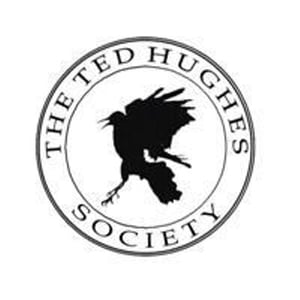Poetry by Ted Hughes
Birthday Letters (London: Faber and Faber, 1998)
Helen Melody (Curator of Modern Literary Manuscripts at the British Library) introduces Hughes's remarkable sequence of poems about his relationship with Sylvia Plath.
Birthday Letters, Hughes’ penultimate poetry collection, was published to both public and critical acclaim in 1998, with Hughes winning accolades for the collection that included the Whitbread Book of the Year and the T.S. Eliot Prize for Poetry. Although Hughes had previously published a small number of poems about his first wife, Sylvia Plath, and Assia Wevill in Capriccio (1990) and in New Selected Poems 1957-1994 (1995), Birthday Letters was the first time he had addressed the subject of his troubled first marriage directly. There was a huge amount of interest in the publication, which came after decades of comment and speculation about the couple’s relationship.
In the eighty-eight poems which make up Birthday Letters, the poet explores his relationship with Plath, recounting events which include the couple’s first meeting (in ‘St Botolph’s’) and their wedding day (in ‘A Pink Wool Knitted Dress’). The volume also records incidents prior to their meeting which were to have a continuing effect on their lives together, such as the electro-convulsive treatment received by Plath which appears in ‘The Tender Place’. Throughout the volume, Hughes captures an impression of his feelings at the time with the insight in subsequent years afforded by his access to Plath’s own archive of diaries and poetry. An example of this appears in ‘The Rag Rug’, in which Hughes records how happy he felt seeing Plath working on her rug before describing how ‘Later (not much later)/Your diary confided to whoever/What furies you bled into that rug’. The result of this is a complex inter-layering of time and perspective within the collection. In later poems, Hughes projects a future that Plath was never to have; in ‘Freedom of Speech’, for example, he imagines her sixtieth birthday celebrations. Elsewhere, in poems such as ‘The Dogs Are Eating Your Mother’, Hughes addresses the couple’s children, Frieda and Nicholas.
The majority of the poems in Birthday Letters, however, are addressed directly to Plath. Many include stark reference to her death. In ‘Visit’, for example, Hughes writes ‘You are ten years dead. It is only a story. /Your story. My story.’ Whilst the poems clearly have an autobiographical element, it is important to remember – as some commentators fail to - that they do not represent documentary evidence of events but, instead, form a poetic retelling of them. Strong interconnections between Hughes’s and Plath’s work can be seen in a number of the poems, which address similar subjects whilst demonstrating the differences between their emotional responses and poetic styles. Indeed, some can be read as direct responses to Plath’s work.
Drafts, correspondence and associated material relating to Birthday Letters, which can be found within the archive of Ted Hughes held at the British Library (reference Add MS 88918/1/2-16), provide a unique insight into the creation of the collection, from Hughes’s earliest handwritten notes and jottings - in one such note, Hughes records that the only purpose of the launch party of the St Botolph’s Review was for him to meet Plath - through to corrected galley proofs and discussion with publishers about artwork for the dust jacket. Hughes’s practice of not dating his drafts means that it is not always possible to pinpoint precisely when individual poems were written. However, diary entries and letters to friends reveal Hughes explaining how he first began a ‘written conversation’ with Plath as far back as the early 1970s, and the archive as a whole allows an intimate insight into Hughes’s feelings about this deeply personal volume.
In a diary entry and a letter to Seamus Heaney written on the eve of publication, Hughes explains how his feelings for the collection changed during the years following Plath’s death. Hughes wrote that he initially avoided literary subjects that could have led to him addressing her death until the 1970s, when he started to write ‘a simple roughly-verse letter to her’. After writing such “letters”, Hughes had vivid dreams about his marriage; however, a concerted attempt to tackle the subject was not successful and Hughes decided instead to write the poems ‘just now and again … only after a decent interval and on impulse’. This in part explains the length of time between his initial work and his eventual publication in 1998. Indeed, on the eve of publication, Hughes was still concerned about his decision, although he felt that, after his years of silence on the subject, it was what he ‘most profoundly needed to do’.
The extent of material in the archive relating to Birthday Letters itself attests to the length of time Hughes spent in crafting the poems. Unpublished material and his early notes afford further insight which will certainly be of interest to anyone wishing to understand more about the couple’s relationship and Hughes’ depiction of it.
Helen Melody is Curator of Modern Literary Manuscripts at the British Library. She joined the Library in December 2008, working on a project to catalogue the Ted Hughes Archive. She is currently cataloguing the Olwyn Hughes archive and continues to work closely with the Library’s Hughes holdings.
